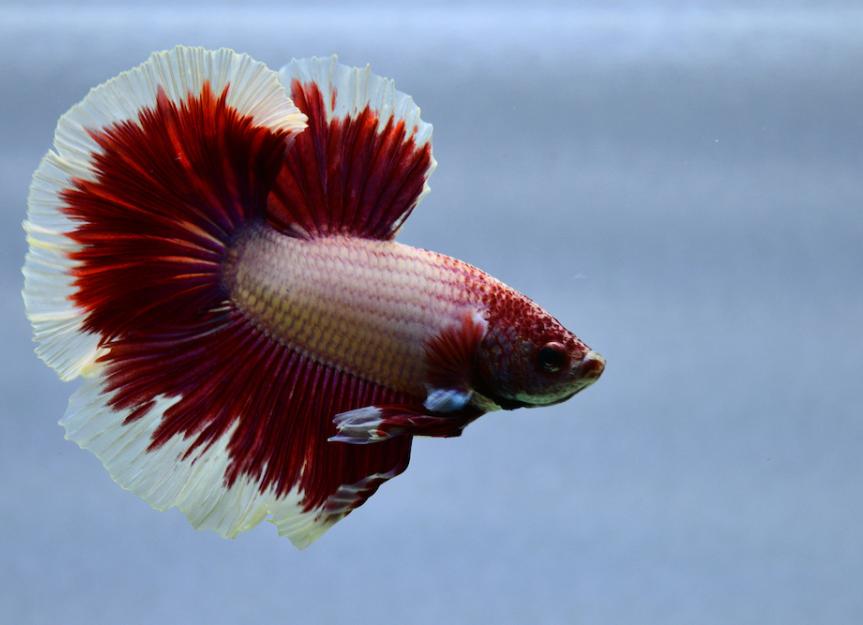Everything About Betta Fish: Comprehending Their Unique Requirements, Behavior, and the most effective Practices for Optimal Treatment
Comprehending the special demands and behaviors of Betta fish is necessary for any kind of aquarist looking to provide optimal treatment. betta fish. As we check out these components further, the ramifications for both amateur and skilled fish keepers come to be increasingly apparent, elevating inquiries concerning how best to fit these impressive fish in our homes.
Betta Fish Overview
Although commonly admired for their dynamic shades and flowing fins, Betta fish, scientifically called Betta splendens, are intricate animals that need particular care to thrive. Stemming from Southeast Asia, these freshwater fish are recognized for their territorial nature and special habits. Betta fish exhibit sex-related dimorphism, with men showing much more vibrant colors and longer fins than ladies.
Their hostile tendencies, particularly amongst men, require careful factor to consider when real estate them. Bettas are usually maintained in single-specimen storage tanks to avoid territorial disputes. They can coexist in harmony with specific compatible varieties in larger area storage tanks, offered the environment satisfies their needs.

To make certain optimal treatment, aquarists need to comprehend their distinct behavior attributes, nutritional needs, and habitat requirements. betta fish. With appropriate focus, Betta fish can exhibit their vibrant personalities and flourish in a well-kept aquarium setting
Natural Habitat and Setting
Betta fish grow in a varied variety of natural environments, mostly discovered in the shallow waters of Southeast Asia, consisting of rice paddies, swamps, and slow-moving streams. These settings are defined by warm temperature levels, normally between 75 ° F and 82 ° F(24 ° C and 28 ° C ), and a pH level varying from 6.5 to 7.5, which is optimal for their health and wellness and well-being.
In their natural environments, Betta fish are accustomed to dense plant life, supplying both shelter and reproducing premises. The presence of plants such as drifting water lilies and thick turfs not only supplies security from predators but additionally adds to the oxygenation of the water, which is necessary for their breathing demands. Furthermore, these atmospheres frequently have locations of still water, enabling Betta fish to exhibit their all-natural behaviors such as bubble nesting.
Recognizing the natural habitat of Betta fish is critical for fish tank enthusiasts. Reproducing these conditions-- via water temperature level, pH balance, and the inclusion of online plants-- can significantly boost the general health and long life of these captivating fish, ensuring they grow in a home aquarium setup.
Social Behavior and Interactions
Recognizing the social behavior and communications of Betta fish is important for effective aquarium monitoring. Betta fish, or Siamese combating fish, are known for their distinct behavior traits, defined mostly by territoriality and aggressiveness. Males, in specific, show very aggressive behaviors towards each other, bring about the notorious credibility of Betta fish as competitors. In a constrained room, two over here males can engage in fierce fights, usually causing injury or death.
Conversely, female Bettas exhibit less hostile actions and can exist side-by-side in teams, referred to as sororities, if presented effectively. Nonetheless, it is critical to check their communications carefully, as pecking order and supremacy can result in conflicts. Comprehending the dynamics within a Betta community is important; establishing hiding spots and guaranteeing enough space can alleviate aggressiveness.
In enhancement, Betta fish might additionally show interest and social habits towards various other types. While they can coexist with specific non-aggressive storage tank mates, it is necessary to pick suitable species to stay clear of anxiety and aggression. On the whole, acknowledging these social interactions is vital to promoting an unified aquarium environment for Betta fish.
Necessary Care Standards
Supplying proper look after Betta fish is essential to their wellness and wellness. To ensure a successful environment, it is necessary to preserve optimum water problems. The water temperature must be kept in between 76 ° F and 82 ° F(24 ° C to 28 ° C), while pH levels need to range Clicking Here from 6.5 to 7.5. Routine water changes-- around 25% once a week-- help preserve water quality.
Betta fish need an ideal tank size; a minimum of 5 gallons is suggested to give adequate area for swimming and hiding. Consist of decors and plants to develop a stimulating atmosphere, yet stay clear of sharp objects that might hurt their fragile fins.

Finally, guarantee the tank is equipped with a filter to maintain the water tidy, however use a gentle filter to stay clear of solid currents that can worry the fish. By following these essential treatment guidelines, proprietors can advertise a healthy and vivid Betta fish.
Common Health And Wellness Issues and Solutions
In the treatment of Betta fish, awareness of typical wellness problems is essential for preserving their well-being. To treat fin rot, boost water conditions and take into consideration utilizing a broad-spectrum antibiotic.
An additional common disorder is ich, a parasitic infection identified by white spots on the fish's body (betta fish). Therapy involves boosting water temperature and adding fish tank salt to the tank, as this can help remove the parasite
Swim bladder problem is likewise regularly observed, causing buoyancy problems. This problem may arise from overfeeding or constipation. A fasting duration of 24-48 hours, adhered to by a diet plan of blanched peas, can give alleviation.
Finally, bettas might struggle with velvet condition, indicated by a gold look at here dust-like look on their skin. Therapy commonly needs medicine specifically created for outside bloodsuckers, along with enhanced tank health.
Routine tracking of water criteria, keeping a tidy atmosphere, and offering a well balanced diet are vital preventative measures. By dealing with these health issues quickly, Betta fish can lead healthier, much more dynamic lives.
Final Thought
In recap, effective betta fish care calls for an understanding of their special requirements and behaviors. Normal tracking of health and water top quality, along with a balanced diet regimen, contributes to the long life and vibrancy of betta fish.